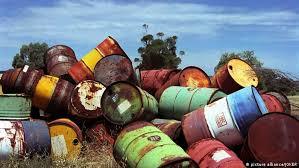Automotive Waste Minimization Program
Automotive making in the global automotive sector has volumes of success stories. Thanks to the growing economic prosperity, overdue relief from poverty, raised living standards, the vehicles production and sales growth rate have become spectacular. With annual automobile worldwide manufacturing increasing by tenfold, the on-road population has quintupled. Wastes, consequently are piling up calling for automotive waste management and automotive waste minimization program. These are now needed as an indispensable specialty in the global auto industry.
Automotive Industry and Waste Management
The gratifying rising automotive production output reaches the price in relation to the high energy usage and increased harmful emissions along with the waste materials. Automotive wastes are a worldwide concern, so the manufacturers involved in the automotive industry are agreeing to Automotive Waste Minimization Program for reducing the production process' environmental impact while recycling and reusing the end of life vehicles.
Once the newer vehicles are introduced in the market, the older cars are forced to the end of their functional lives, so they have to be scrapped. So, it needs responsible management with the environmental pollution reduction intent and recovery of useful materials, especially metals. Automobiles are categorized into the most recyclable engineered products, which offer up to 90% recovery rates. Typically, a commercial car includes 65% steel, 7 – 8 % aluminium in approximate, with a few reusable materials like copper, plastics, rubber, and copper.
Wastes Earning Revenues – The Changing Attitude to Waste Management
Waste Management space incorporates several approaches for converting wastes into lucrative elements, by utilizing strategies like "circular economy". It is the most comprehensive strategy the automakers utilize to recycle the automotive wastes and for improving their profit margins. By keeping the resources of the firm in–house, it is achieved. Their maximum value is achieved while they are in use, and it is further followed by materials and products recovery at the end of service life.
At present, automotive companies are adopting efficient waste recycling methods and using materials that maintain their quality till the end of the extraction process. Closed-loop recycling is the most impactful approach used whereby a product is enabled for self–recycling. Organizing an automotive waste minimization program, the professionals proactively collect the end-of-life vehicles from the end-users. This automotive waste recycling method reduces energy usage by 75% and thus helps in significant cost savings in the further manufacturing process.
Through waste management procedures, a large amount of steel is recovered from the end of life vehicles and reducing the harmful iron ore refining process that involves the use of coal for creating steel. In brief, through recycling steel, less energy is utilized in comparison to new steel production from the scratch.
Advanced Automotive Waste Management is the Future
The environmental initiatives for the automotive hold an upward curve. Starting from the production processes, waste management initiatives have been expanded to the supply chains, non–manufacturing faculties, product performances and final disposal. Automobile manufacturers are now being proactive other than reactive.
The individual potential towards increasing waste flows into significant volumes defining automotive business development is the secretive success for the automotive waste management initiatives. Furthermore, the fundamentals also comprise the ability at establishing the supply chains with professionalism with high operational efficiency levels together with societal and environmental effectiveness.



